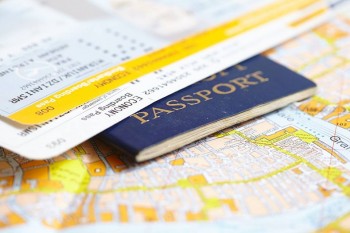— 1 Oct 2019, 11:00:37 by Kate Moore

Travelling after Brexit – checklist for schools travelling to the EU after 31st October 2019.
What group organisers need to know about travelling to mainland Europe if we leave the EU without a deal.
Make sure that you and every member of your group has a valid passport with at least 6 months left to run. The passport office has a handy online checker to determine whether you need to renew.
As group leader, make sure you have details of your accommodation booking and return journey printed out or available on your phone. This is because if the UK leaves the EU without a deal, Border officials may ask for evidence of “sufficient means of subsistence” for the group’s intended stay and return.
Allow plenty of time at the port or airport. In the short-term there could be some disruption caused by crowds and congestion and so we recommend you allow more time than usual at the ferry terminal or airport.
No, the European Commission has confirmed that British travellers will not need visas to visit the European Union on short stays, even if there is a no-deal Brexit.
Yes, the rules for travel to most countries in Europe will change on 31st October 2019. The Government states that British citizens travelling to the EU after exiting the European Union will need at least 6 months when you travel to most EU countries.
It usually takes three weeks to renew a passport so we recommend that parents and teachers allow plenty of time to renew before the group’s planned travel date. Passport holders who do not meet these criteria, may be denied entry to EU countries after Brexit.
There is currently no published advice relating to changes to collective passports for school groups.
School groups will not be able to use their EHIC cards to access state healthcare in most EU countries after Brexit.
The latest advice from the government states that travellers who intend to use their European Health Insurance Card (EHIC) must check what the arrangement is with the specific country before they travel. This page on the NHS website provides country by country information for travellers regarding healthcare arrangements.
EHIC cards are no substitute for travel insurance which is why we recommend that all school groups have comprehensive travel insurance which includes emergency healthcare. Contact us to organise travel insurance for your school group.
The Channel Tunnel will be open and operating as usual after Brexit. Most ferry services sail and operate under international rules and so will not be affected by Brexit changes. Your school group may experience a build-up of traffic around the ports but we will factor this into your itinerary.
Most of our school groups travel in our own coaches which are registered in either the UK or in France. In the event of a no-deal Brexit, the UK will join the Interbus agreement which allows UK coach companies to carry out “occasional services”, such as school trips to and from Normandy.
Potentially, yes. The costs that EU mobile operators can charge UK operators for providing roaming services would no longer be regulated and so using a mobile phone in the EU may be more expensive after October 31 2019. We recommend that teachers and parents check their roaming charges with their mobile operator before the trip. To avoid any unforeseen roaming charges, students will need to know how to turn off data roaming on their phones before boarding the ferry.
We believe that the benefits of a language immersion trip outweigh any potential short-term disruption to your group’s travel arrangements.
If your school group has any unexpected travel disruptions we will use our local connections and network to provide all the support you need. For example, we have a number of school centres in Northern France, a large local resort team, and our own fleets of coaches located in Normandy and the South Coast of England offering emergency back up.